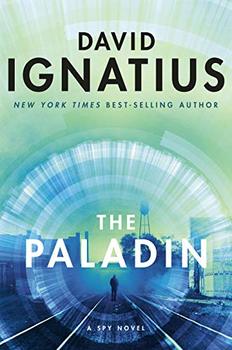
The antihero has been a fixture in literature since Homer, although the term was first used in France only in the eighteenth century. In our time, the antihero has become a familiar figure through the writing of Dostoevsky, Kafka, Sartre, Camus, Kerouac, and Mailer and has entered popular culture through comic books, film, and television. (Think The Sopranos, Breaking Bad, and Game of Thrones.) But the work of David Ignatius had led me to expect a more sympathetic protagonist than I encountered in his latest, a revenge fantasy titled The Paladin.
The protagonist is not likable
Michael Dunne is not likable. Although he is a brilliant computer programmer and an accomplished field officer for the CIA, I just can’t relate to him. He’s impulsive, quick to anger (“his Scotch-Irish temper”), self-destructive, and so passionately dedicated to wreaking revenge on his enemies that he ignores all the well-considered, contrary advice from friends and foes alike. And of course he gets himself into a great deal of trouble when he does so.
The Paladin by David Ignatius (2020) 320 pages ★★★☆☆
Michael Dunne gets himself into a lot of trouble
The Paladin opens when Dunne is on trial in federal court for having “done what he thought was right under the circumstances, under orders.” We will later learn that he had been strenuously advised not to follow those orders. And his attorney counsels him to express contrition, which should lead to some time in community service but no incarceration. Ignoring that advice, too, he strikes out at his bosses in court. The judge then sentences him to a year a federal prison.
The Paladin is a revenge fantasy
Now, in 2018, after his release from the Federal Correctional Institute at Petersburg, Virginia, Dunne heads to Pittsburgh, Pennsylvania. He immediately sets out on an elaborate scheme to take revenge on his boss at the CIA and the others he believes have ruined his life. Naturally, since this is fiction and we’re expected to sympathize with Dunne, he will have his way in the end. However, given the constellation of powerful forces arrayed against him and his own meager resources, that resolution seems strained.
How could one man overcome all the forces arrayed against him?
Here is what Michael Dunne is up against:
- A young American anarchist hacker named Jason Howe now poses as a journalist at the helm of a website called Fallen Empire that has racked up an extensive record of publishing top-secret government documents. The CIA cannot move against him because he is protected by the First Amendment. (Sound familiar?)
- An equally brilliant Italian hacker, Lorenzo Ricci, runs a hacker group called the Quark Team which has developed technology to produce deepfake video that can fool any but the most intensive study. (“These people are scary good . . . Like the Russians, but better.”) And the Quark Team uses deepfakes to disrupt the political process and economic affairs to enrich themselves and their backers.
- Behind this assemblage of criminals is a beautiful woman—a Swiss billionaire who owns a huge private bank and a 300-foot yacht.
- The Deputy Director of Operations (Dunne’s boss) and others at the CIA are in cahoots with the criminal cabal based in Italy.
Ignatius’ early novels all hewed much closer to reality than this exercise in revenge fantasy. I found the book disappointing even though it’s well written and tightly plotted.
A telling and timely quote from Kierkegaard
To me, the most powerful element in The Paladin is a quotation Ignatius cites at the outset from Søren Kierkegaard: “There are two ways to be fooled. One is to believe what isn’t true; the other is to refuse to believe what is true.” I can hardly think of any sentiment more apt in this trying time in the history of the United States. Unfortunately, if Ignatius intended for this sentiment to be the central theme of the novel, he failed.
For related reading
Based on his earlier work, I regard David Ignatius as one of the most compelling spy novelists of our time, fully the equal of others who have sold more books and gained greater prestige. I’ve reviewed five of his novels previously, all of which I enjoyed more than The Paladin:
- Siro (The most intelligent spy novel I’ve read in many years)
- A Firing Offense (A suspenseful espionage story about journalists and spies)
- Agents of Innocence (The CIA and the PLO in Cold War Beirut)
- The Increment (From David Ignatius, a gripping novel about Iran and the CIA)
You might also enjoy my posts:
- The 15 best espionage novels
- Good nonfiction books about espionage
- The best spy novelists writing today
- Top 10 mystery and thriller series
And you can always find my most popular reviews, and the most recent ones, on the Home Page.

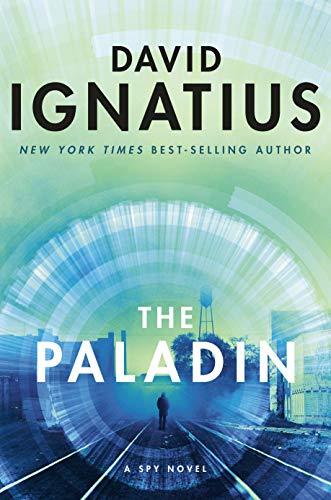

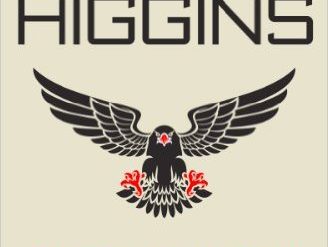
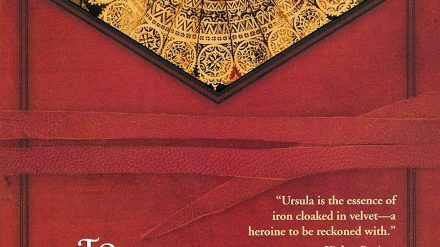
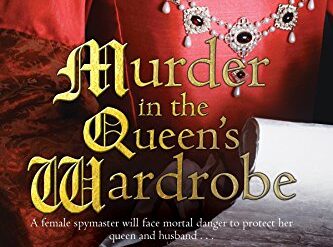






















Hi Mal… a blast from your past!
It was awesome to find you and your website. It happened while searching for reviews of The Paladin, my book clubs current read. I agree with your analysis of it, but finished the book anyway.
“About Mal” page was a good read. But such bios do not paint the whole picture of a life over the past 51 years. How are you?
Berkley would be ideal place to live out the pandemic. I am in Vermont, equally ideal. Lets be and stay in touch. tari
Hi, Tari,
It’s terrific to hear from you! In fact, your name came to mind just a few days ago. Serendipity, of course.
My wife and I are holding out in the face of the pandemic as the numbers spike around us. Grim times we live in.
Where in Vermont do you live? My brother and sister-in-law live in South Burlington, and my niece and her husband in Vincennes. If my dim memory serves, the last I heard about you — decades ago — was that you were working for IBM. Still, or, like me, retired? What are you up to these days?
Cheers,
mal